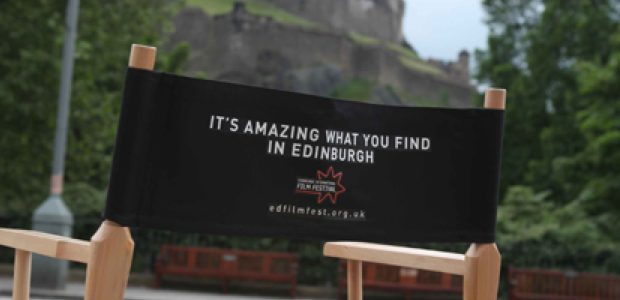Showing @ Various Cinemas, Edinburgh, Wed 15 – Sun 26 June, for full listings click here
As this year’s EIFF welcomes its new director James Mullighan, the festival sees its red carpets rolled-up and its glitzy nightlights dimmed (shame on ex-director Hannah McGill for trying to make the event distinguished, eh?) Having said that, it’s intriguing that the documentary movie nudges its way into the limelight this year. There’s often an honest beauty which lingers in documentaries, from the shifting interviews and panning tracking shots to the moral imperfections of real-life protagonists. And so a stirring oddity motors the festival this year, where practically all of the films are framed, characteristically, by the nature of enquiry; whether literally in films like Steven Silver’s The Bang Bang Club or metaphorically in the experimental Cityscapes shorts programme.
Unfortunately, there’s a kind of mainstream tint which tries to upstage the more inquisitive films this year, appearing more disruptive than complementary. The UK debut of Perfect Sense, directed by Scot David MacKenzie, welcomes headliner Ewan McGregor all the way from Perth Los Angeles. A tale of love in Scotland (in which people start to lose their senses one by one), the film still seems to be that bland kind of MacKenzie-esque Scottish landscaping which premieres as a big-hitter. Sharing the starring title is David Hare’s Page Eight: though exciting as it is that it’s Hare’s first directorial encounter since his tale of sexual freedom and exploration in Strapless, this 2011 drama sees Bill Nighy try to take down the British political establishment, trying to find solace after the death of his best friend. I’m kind of disappointed he doesn’t have tentacles on his face in this one however.
Fortunately, the fight for unique talent is saved by Ali Samadi Ahadi’s trenchant documentary The Green Wave on civilians caught up in the buckling, violent revolutions during the 2009 Islamic Presidential Elections. Speaking of light-hearted comedy documentaries, how about Danfung Dennis’s debut report feature Hell and Back Again chronicling the US assault on the Taliban in southern Afghanistan? While this may sound hackneyed, the level of artistic craft and pioneering ingenuity pushes the crossover boundaries between war correspondence and filmmaking. As Dennis has built a flexible, personalised camera rig he films the quickfire operations with a grisly realism, managing to both unsettle and invigorate our perception of war. What’s interesting is that it houses a push towards the fusion of reportage and art, no doubt a controversial mission. Regardless of standpoint however, its freshness will contrast some worn, if not still pressing documentaries at the festival this year (Oliver Stone’s 1986 Frontline Club for instance).
As with all festivals, this year’s EIFF embraces the fact that if a film, documentary, event or piece of art is moving, compelling or unique – we’re going to love it, regardless of how irrelevant it may seem. And with that, up steps Project Nim, from director James Marsh (Man on Wire), which details the story of Herb Terrace, a researcher who attempts to teach a chimpanzee language and communication by having him brought up as the child of a human family. I don’t want to be distasteful but I hope it’s Cheryl Cole’s family, I mean, a Geordie monkey? Come on.
Of course, there are some intriguing and inquisitive feature films that soak up the rest of this year’s EIFF. John Michael McDonagh’s (brother of In Bruges director Martin McDonagh) cop comedy The Guard is an intense portrait of merging identities when small-town detective meets inner-city agent (Brendan Gleeson and Don Cheadle). From the other side of the world, Sung-hyun Yoon’s incandescent, sombre Bleak Night offers a touching account of callowness and frailty when two schoolboys find themselves interrogated after the death of their friend.
Even Yoon’s film offers a magnification, an analysis, a question. The interrogation of the boys epitomises this year’s festival quite well. For all the films this year, most feel underpinned by the voyeuristic side to filmmaking and photojournalism, rooted sharply in the documentation of art itself. So what’s left is a piercing and quite profound attitude towards representation and portrayal, supported by the feature films which explore the investigative side to characters, plot and aesthetic.

